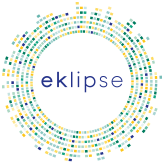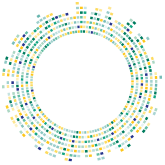A key strength of Eklipse is its focus on using the best methods of knowledge synthesis to address every request. This improves the transparency and reliability of its syntheses. Diverse methods exist, and vary in their suitability for particular contexts, through factors such as risk of bias, resource requirements, types of knowledge that can be synthesized and capacity for participation. The Methods Expert Group (MEG) advises and guides Expert Working Groups (EWG) on the use of methods in a request. Eklipse requests have used a variety of methods such as systematic review, scoping review, multiple expert consultation with Delphi process, joint fact-finding, focus groups and structured decision-making.
Methods
Methods of knowledge synthesis in Eklipse

Eklipse resources on methods
Report and guidance notes
Choosing the right method of knowledge synthesis for policy can be challenging. Syntheses are often constrained by time limitations and the challenges of using unfamiliar methods. Eklipse has developed a number of resources to aid this process.
The MEG has produced a report ‘Knowledge synthesis on environmental decisions‘ covering the range of different available methods for knowledge synthesis. The report covers 21 existing methods, together with advice on their selection, use and development. It describes these methods with their strengths and weaknesses and provides key references and examples of where a method has been used for policy decisions. For the overall context, we recommend reading the complete report.
Below are links to the individual description of these methods:
- Bayesian belief networks
- Causal criteria analysis
- Collaborative adaptive management
- Discourse analysis
- Expert consultation
- Focus groups
- Joint fact-finding
- Meta-analysis
- Multi-criteria decision analysis
- Multiple expert consultation + Delphi process
- Participatory mapping
- Non-systematic literature reviews
- Rapid evidence assessment
- Scenario analysis
- Scoping review
- Solution scanning
- Structured decision-making
- Subject-wide evidence synthesis
- Systematic map
- Systematic review
- Vote counting (not recommended)
Of these, we recommend the use of 20 methods, which meet the following criteria for inclusion:
- Capable of synthesizing at least one of the main types of knowledge.
- Well-defined and applied in international scientific literature.
- Applicable to inform decisions at the science-policy interface.
- Distinct from all other included methods.
The exception is vote-counting, a commonly used approach which we do not recommend.

MAGICKS – choosing a method
Eklipse has also developed MAGICKS (Method Application and Guidance In Conducting Knowledge Syntheses) to help guide the process of choosing a method of knowledge synthesis. MAGICKS includes a subset of 18 methods suitable for a wide range of contexts, as Eklipse requests have shown. Two methods (3: collaborative adaptive management; 16: Solution scanning) were not considered generic enough to be included, because they serve very specific purposes. MAGICKS is an open-source, interactive decision support tool that draws on the work of the MEG in collating and classifying methods. It is suitable for use in a variety of policy and management settings and Eklipse encourages you to explore its potential for your synthesis needs. MAGICKS is accessible HERE ; please contact us to request a password. We also welcome feedback on its performance. A scientific article describing MAGICKS is currently in preparation.



